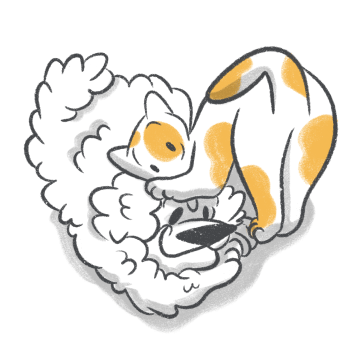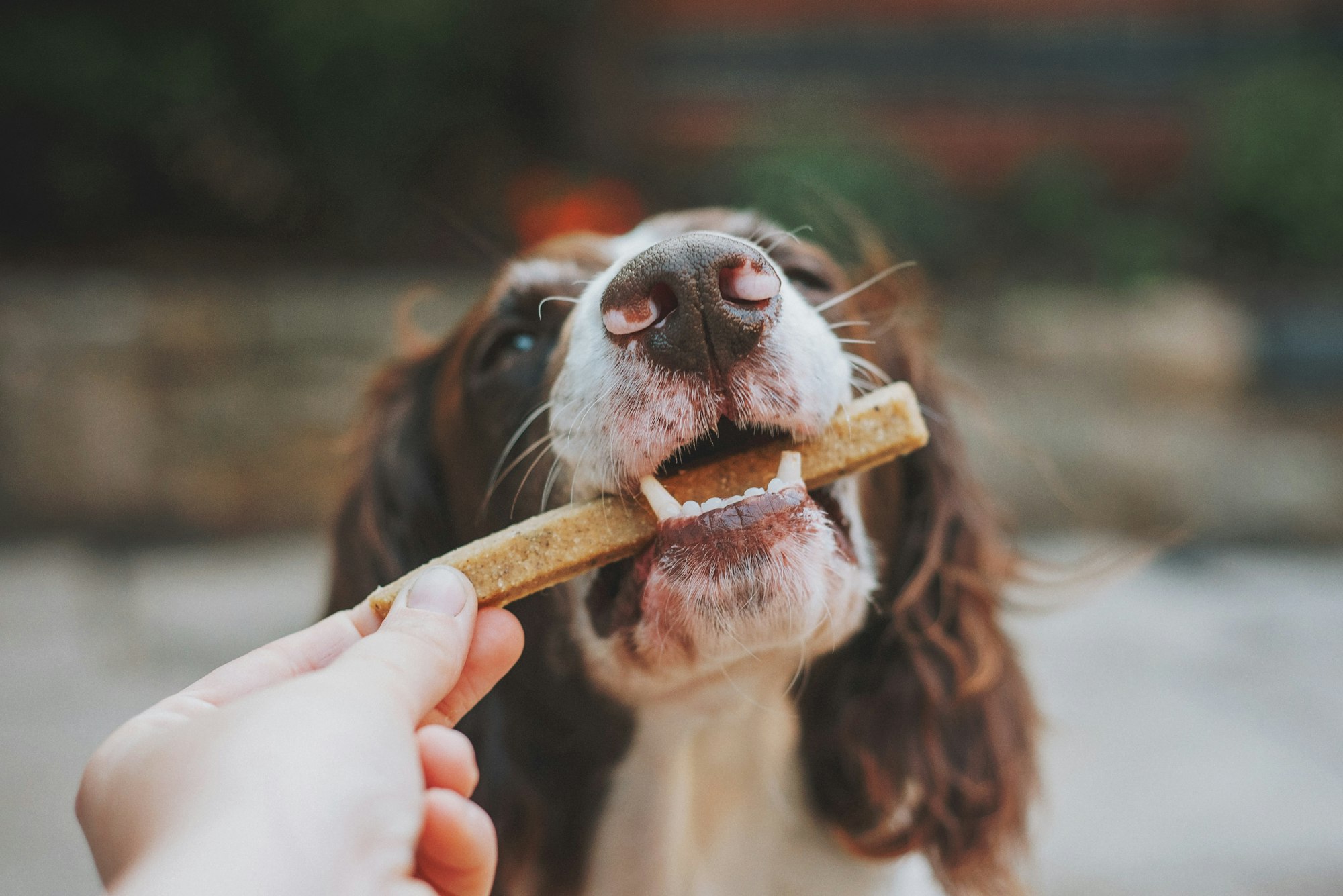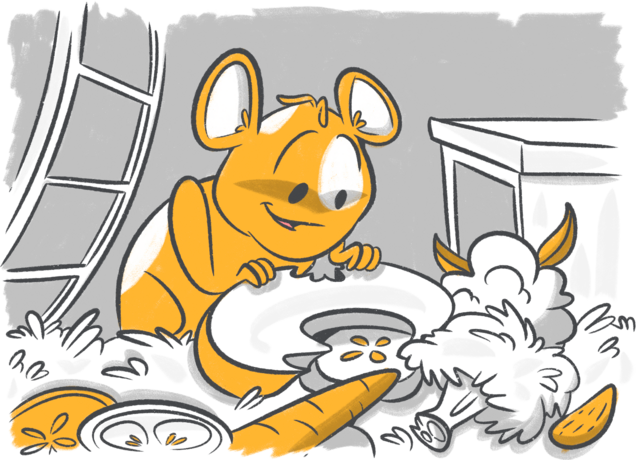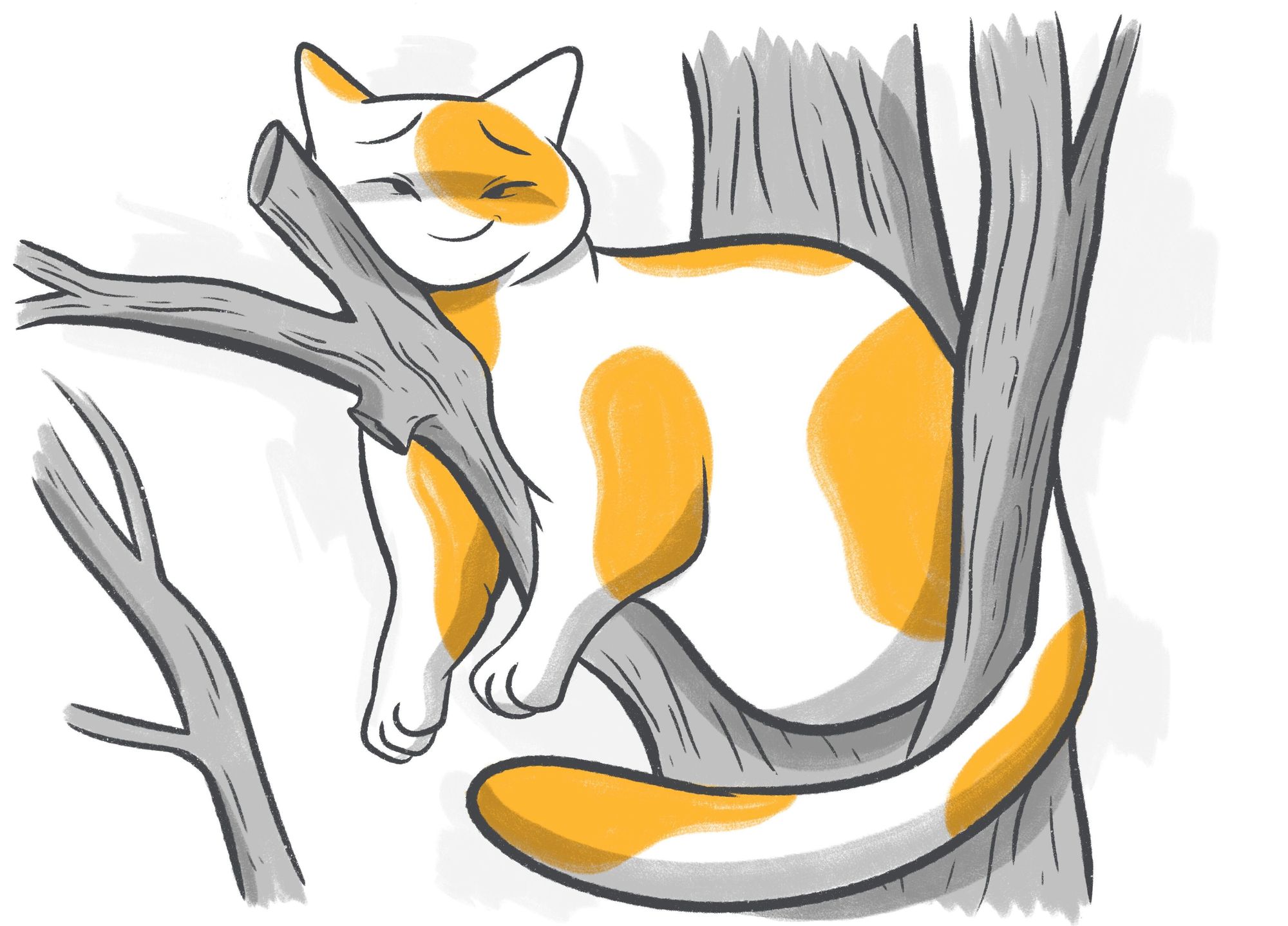Dogs and cats love to sniff around and lick anything they find interesting. It’s all about awareness, knowing what to feed and what not to feed your pets. Here are 21 everyday foods that can poison pets.
1. Xylitol Chewing Gum
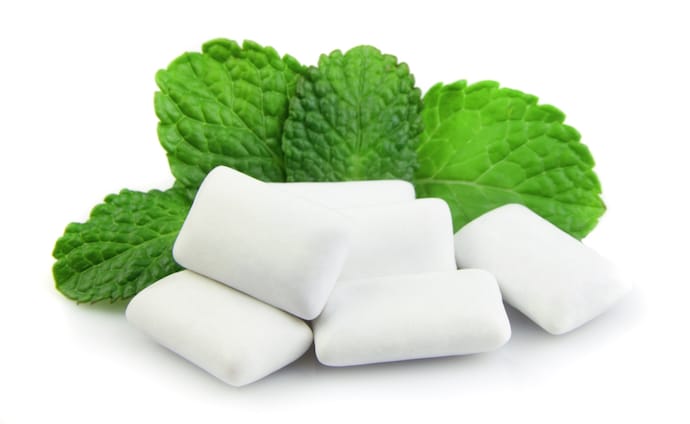
That sugar-free chewing gum or candy? A small amount is extremely dangerous to your pets. Xylitol is a synthetic sweetener that causes liver diseases and blood clotting disorders. Initial symptoms include vomiting, lethargy, and loss of coordination, and seizures.
2. Raw Fish

Watch out for salmon and trout. Raw salmon can be fatal especially if the fish is infected with the bacteria “Neorickettsia helminthoeca,” which, in some cases, can be fatal to pets. However, cooked salmon or trout is fine. If diagnosed early, your pet has a big chance of recovering.
Read more: Can Dogs Eat Seafood?
3. Liver
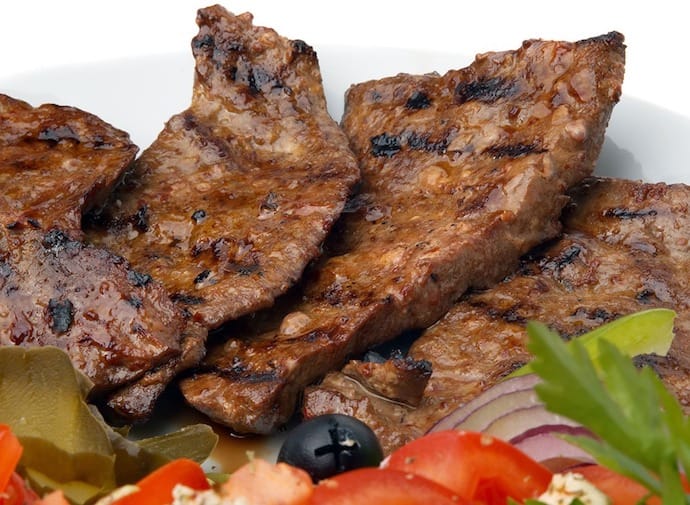
Although a small amount of liver is okay, feeding too much of it to your pet can be harmful. Liver contains a lot of Vitamin A, which can damage your pet’s muscles and bones.
4. Mushrooms
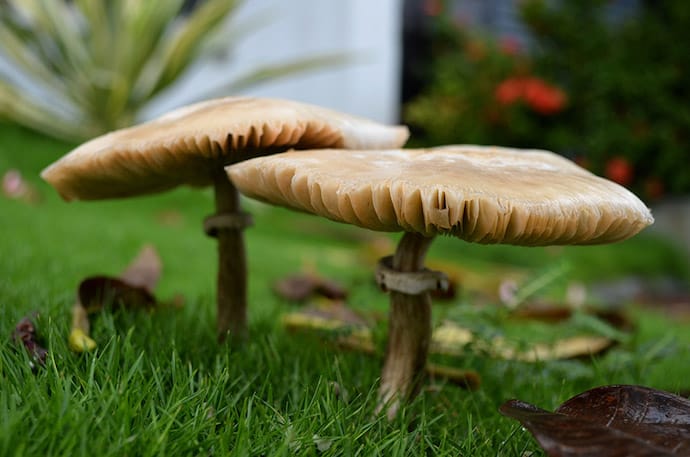
The wrong mushroom can poison your pet. Although some mushrooms are edible, it’s best to avoid feeding your pet with it. Mushroom toxicity can be fatal, causing seizures, tremors, and organ failure.
5. Unripe Potatoes
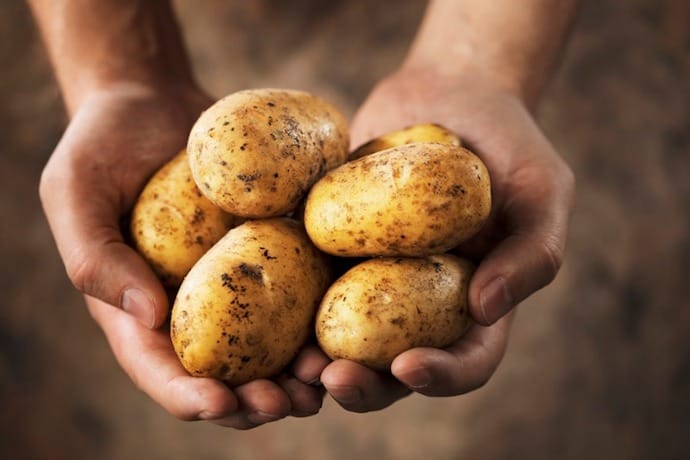
Although this seems surprising, raw and unripe potatoes are toxic to pets. A few symptoms of poisoning from eating potatoes include vomiting, nausea, seizures and heart problems.
6. Rhubarb
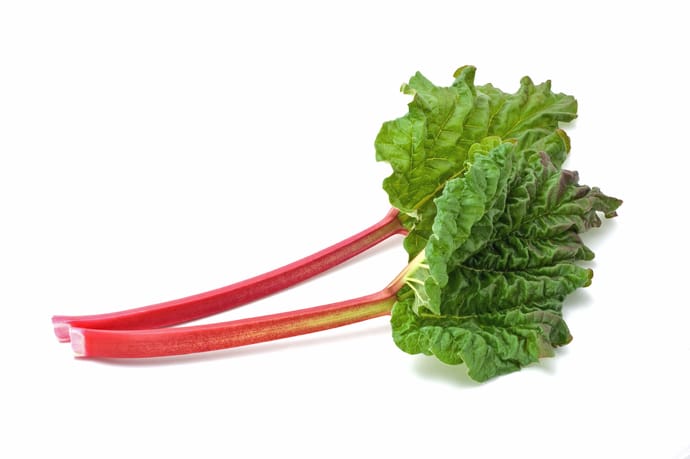
This vegetable is used in making pies, but should never be given to pets. Its leaves and stems are known to deplete calcium levels in dogs. When fed to pets, it causes renal failure and medical problems.
7. Grapes and Raisins
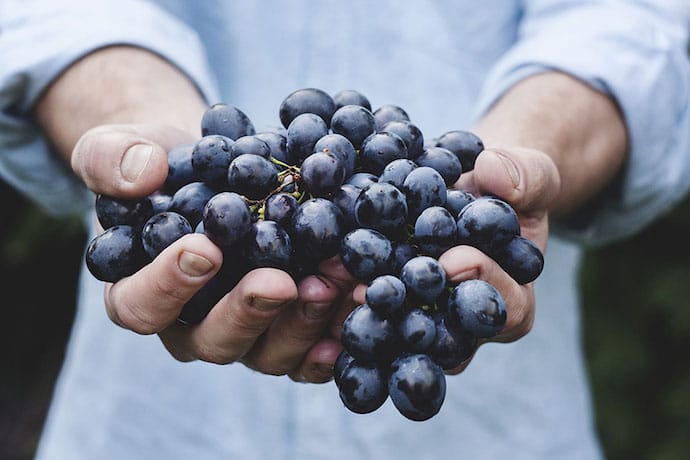
Better check that cookie. Grapes and raisins can cause dehydration and intestinal problems. Symptoms include vomiting and diarrhea.
8. Macadamia Nuts
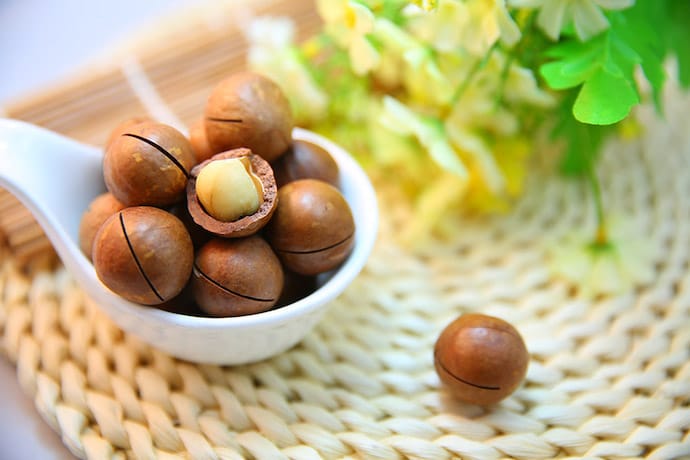
Really? Well, apparently they contain a toxin that causes kinesthetic issues, tremors, and swollen limbs. Symptoms include muscle weakness, tremors, vomiting, and depression. Not good.
Read more: Can Dogs Eat Nuts? Good vs Bad
9. Onions

Oh my onion! They can mess up the red blood cells in your pet. Onions contain compounds that can be harmful to pets.
10. Garlic
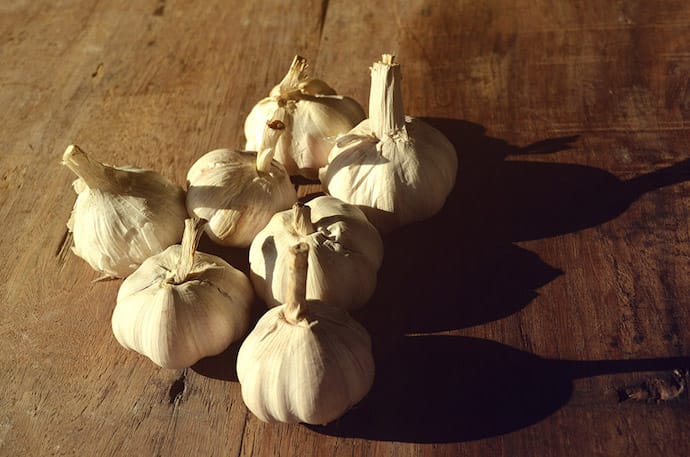
Garlic can potentially do more damage to pets. They contain compounds that are poisonous to pets. They also affect red blood cells. Your pet’s urine may turn into orange or dark red in color. Also not good.
11. Avocados
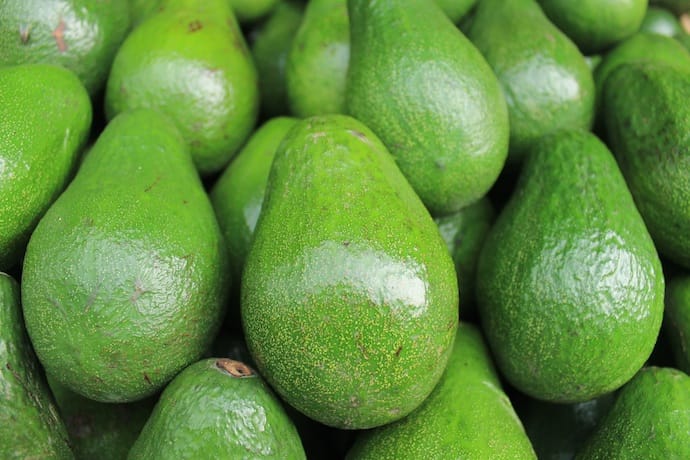
While the fruit is delicious, it has been linked to causing vomiting, breathing difficulties, and heart congestion among pets. Avocados contain the toxin persin, which upsets your pet’s stomach. It has also been known to cause breathing difficulties.
12. Citrus
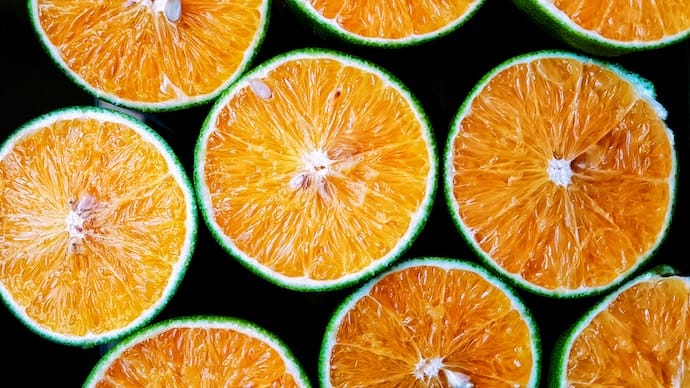
The stems, leaves, peels, and seeds of citrus plants contain citric acid, which can cause irritation. When ingested in significant amounts, it can negatively impact your pet’s central nervous system.
13. Coconut
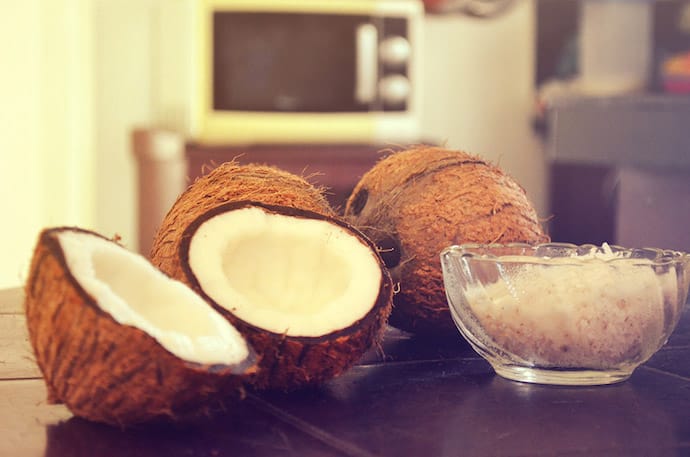
Although a small amount isn’t harmful to pets, the milk of fresh coconuts contain oils that may cause stomach disorders and diarrhea. Also, avoid giving coconut water to your pet as it’s high in potassium.
14. Yeast Dough

Yuck! But your pet might accidentally eat them. When consumed, yeast dough can ferment and expand into your pet’s stomach, rupturing the intestines. Symptoms include severe stomach pain and internal bleeding.
15. Apple Cores
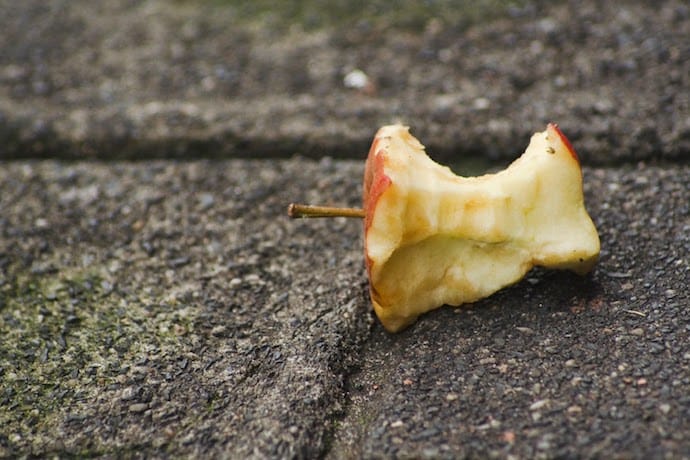
Like peaches, pears, apricots, and plums, apple cores contain glycosides, a.k.a. cyanide. When eaten by pets, it can potentially cause dizziness, collapsing, breathing problems, hyperventilation, shock or coma.
16. Chocolate
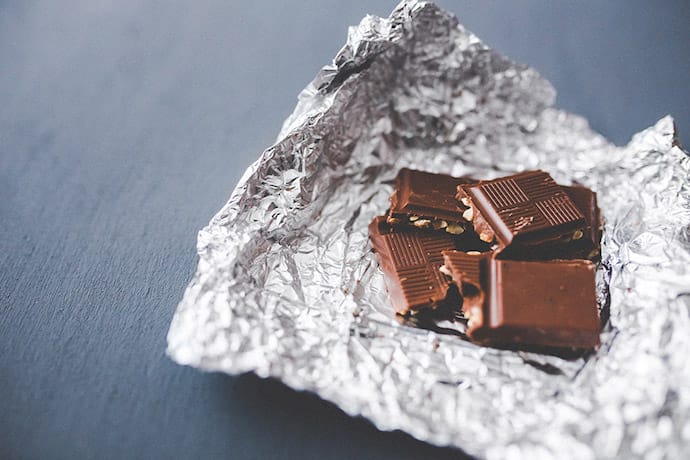
Of course you’ve heard about chocolate and why it’s toxic to dogs. Chocolate contains caffeine and theobromine, which are considered methylxanthines. When eaten, it can cause vomiting, dehydration, abdominal pains, severe agitation, muscle tremors, irregular heart rhythm, seizures or death.
17. Milk
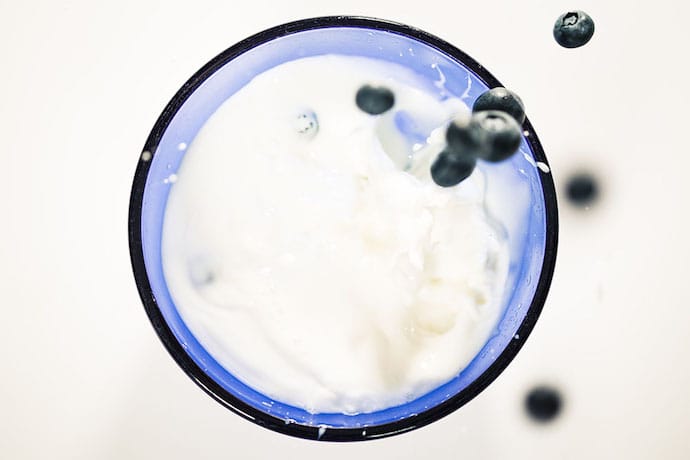
Pets, particularly dogs, can suffer from lactose intolerance, too. Milk contains a type of sugar that dogs cannot digest due to their lack of enzymes. Milk can cause vomiting, diarrhea, and gastrointestinal problems.
18. Cheese
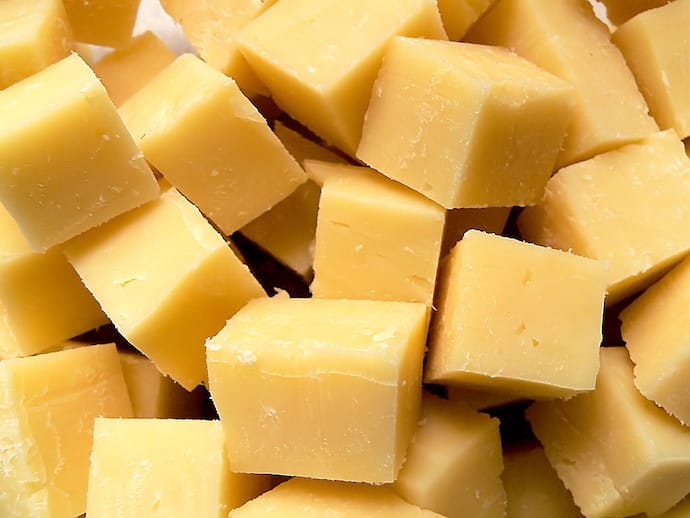
Like milk, cheese has sugars and fatty acids that dogs cannot digest properly. When consumed in large quantities, it causes diarrhea, vomiting, and gastrointestinal diseases.
19. Alcohol

What makes you drunk can make your pet sick. Alcoholic beverages and food products containing alcohol can cause vomiting, diarrhea, breathing difficulties, tremors, abnormal blood acidity, coma, or even death.
20. Raw or Undercooked Meat, Eggs and Bones
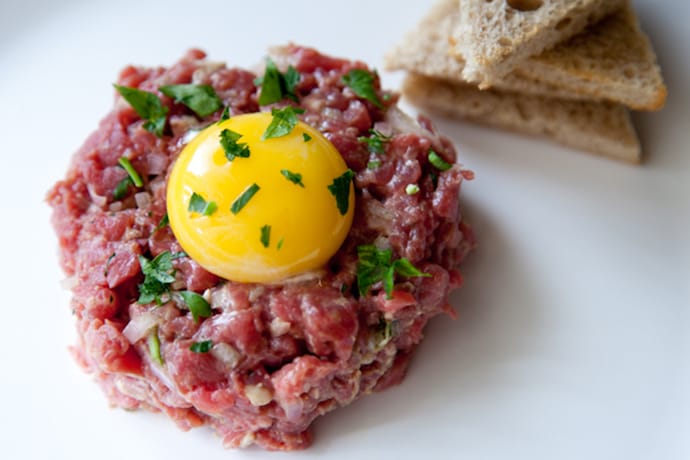
Raw meat and eggs can contain bacteria such as Salmonella and E. coli, which are harmful to both pets and humans. Raw eggs contain an enzyme called avidin that decreases the absorption of biotin, leading to skin and coat problems. Feeding your pet raw bones can also cause internal bleeding and choking.
21. Coffee

Lastly, avoid giving coffee to your pets. Coffee will not only make your pets nervous, it could make them thirsty and hyperactive, too. Caffeine causes excessive panting and seizures.
Don't know what food is okay to feed your pet? Online Vet by Petcube can help you out in a minute! Whether big or small, any question is worth asking, as our Online Vet is available 24/7 on weekends and holidays without scheduling vet appointments. Start a chat and just ask.
Was this article helpful?
Help us make our articles even better



